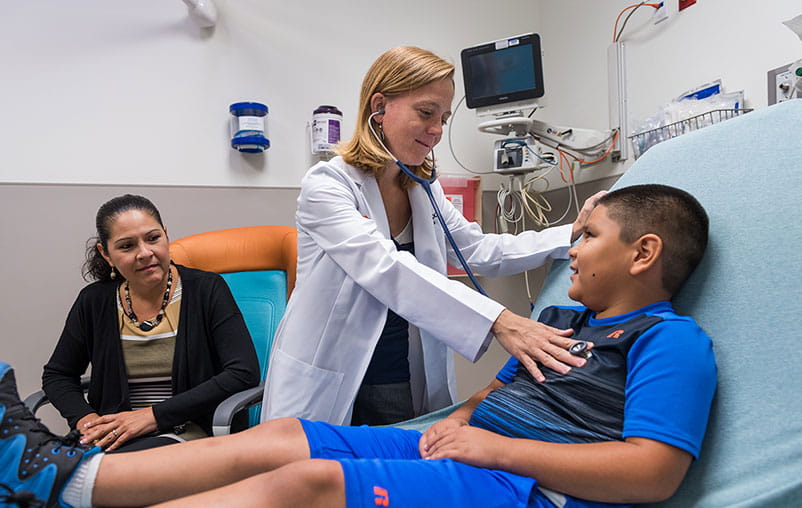Next week, on June 15, the FDA will consider authorizing the Pfizer and Moderna mRNA vaccines for children as young as six months old. Many parents are eager to vaccinate their very young children against COVID-19; others still have questions. Dr. Mandie Tibball Svatek answers some common questions we’re hearing about processes and safety.
Why don’t we have COVID-19 vaccines for children under 5?
Current studies show that children 6 months up to 2 years old showed a robust immune response. But for children aged 2-4 years, that immune response was not the same as children that were over 4. So they’re currently looking at a third dose.
It was found to be as safe as in children 5 and above, but as far as effectiveness, they needed to look a little bit further at that third dose.
When will we be able to vaccinate children under 5 against COVID-19?
I hope we’ll be able to get the FDA approval soon after they look at the studies for children under 5 with the third dose that they receive and looking at that immune response to assure that it is as equal to those that are 5 and above.
If Omicron doesn’t cause severe illness, why were so many children under 5 hospitalized?
As new variants were coming in, even with the delta variant, we saw an increased number of children hospitalized. I had more children in the hospital with COVID, fortunately recovering pretty well, and then as omicron moved in, we found that more individuals were being affected by omicron.
Omicron spread more easily spread than some of the other variants. As we had children that were unvaccinated, that spread was much easier and that number, 25% of children were being affected by COVID, was a much higher percentage than in the past.
With that much higher percentage, we were starting to see much higher numbers in the hospitals for children, even though that’s still less than 1%.
How big will the COVID-19 vaccine dosage be for children under 5?
For children 5-11 years old, 10 micrograms is the current dose, which is less than children 12 and above get.
For children below the age of 5, that dosing is 3 micrograms. That immune response in the children age 2-4 years was not found to be as effective, so now they’re looking at that third dose to ensure that they will have the same robust immune response as children that are 5 and above.
Did a safety concern cause a delay in the Pfizer COVID-19 vaccine for children under 5?
There was no safety concern. There were similar symptoms that they found as far as side effects after you receive a vaccine: pain in the arm, fever, fatigue. But they were looking at the effectiveness and how well you built that immune response from COVID.
Why is Pfizer looking at a three-dose series for its COVID-19 vaccine for children under 5?
Currently, looking at that dose that’s in comparison for children 5-12, it’s about one-third of the dose. So it’s much less. That’s when they were looking at how effective that dosing was. It wasn’t found to be as effective, so that’s why they’re looking at that third dose to assure that it is much more effective in reaching that immune response that’s similar to children 5 and above.
Have there been any safety concerns related to the vaccine trials in younger children, such as myocarditis?
When we look at the number of cases of myocarditis, you will see commonly what they estimate 54 cases per million doses received. That rate was really low. If we think about the number of children that have died from COVID, that has been over one thousand children.
The number of children that have developed multisystem inflammatory syndrome in children (MIS-C), which can be associated with myocarditis, is over 7,500 children and approximately 48 deaths from MIS-C.
So we compare the two and we know that the number of associated myocarditis cases are self-resolved with the vaccine versus you can get COVID and myocarditis and associated deaths with that, the risk-benefit has shown that you’re much safer getting the vaccine as opposed to getting COVID and putting yourself at risk or your child at risk for developing myocarditis.




